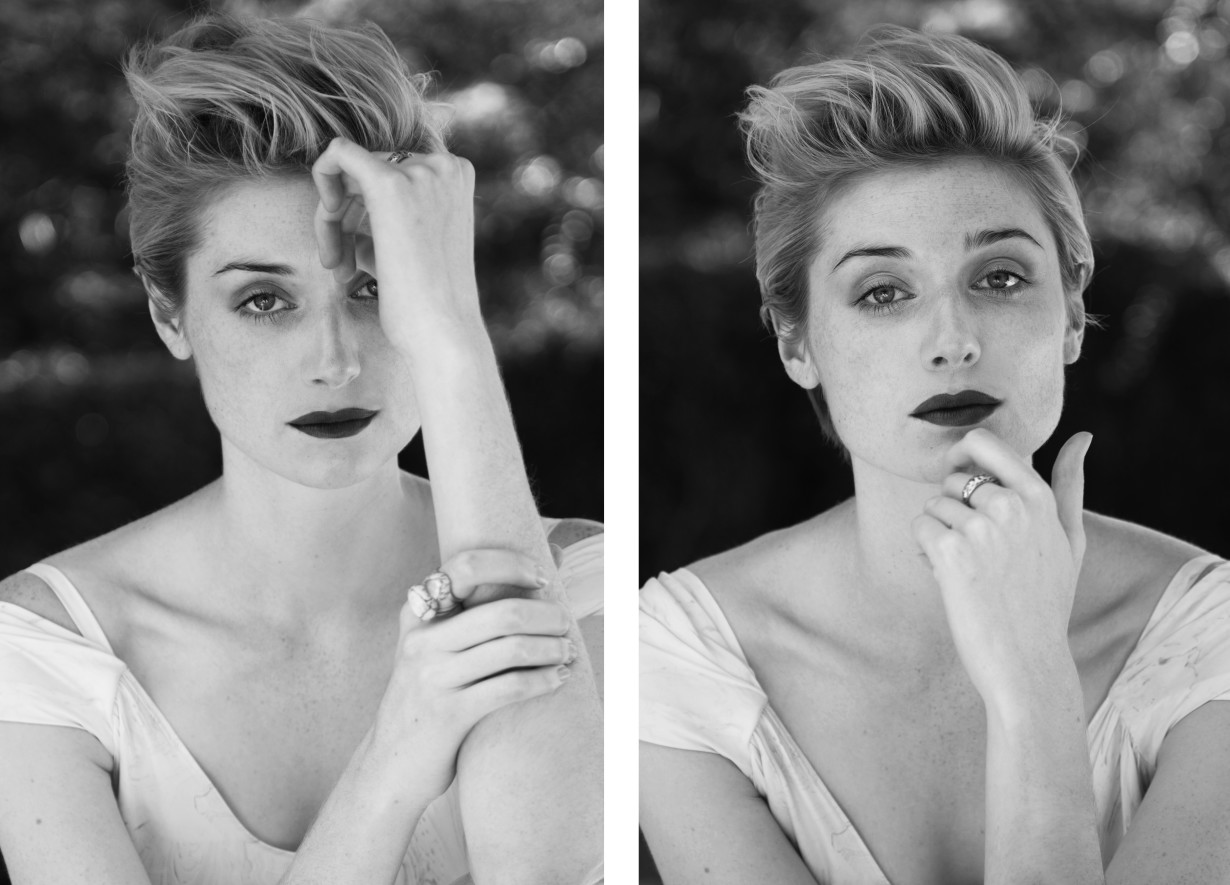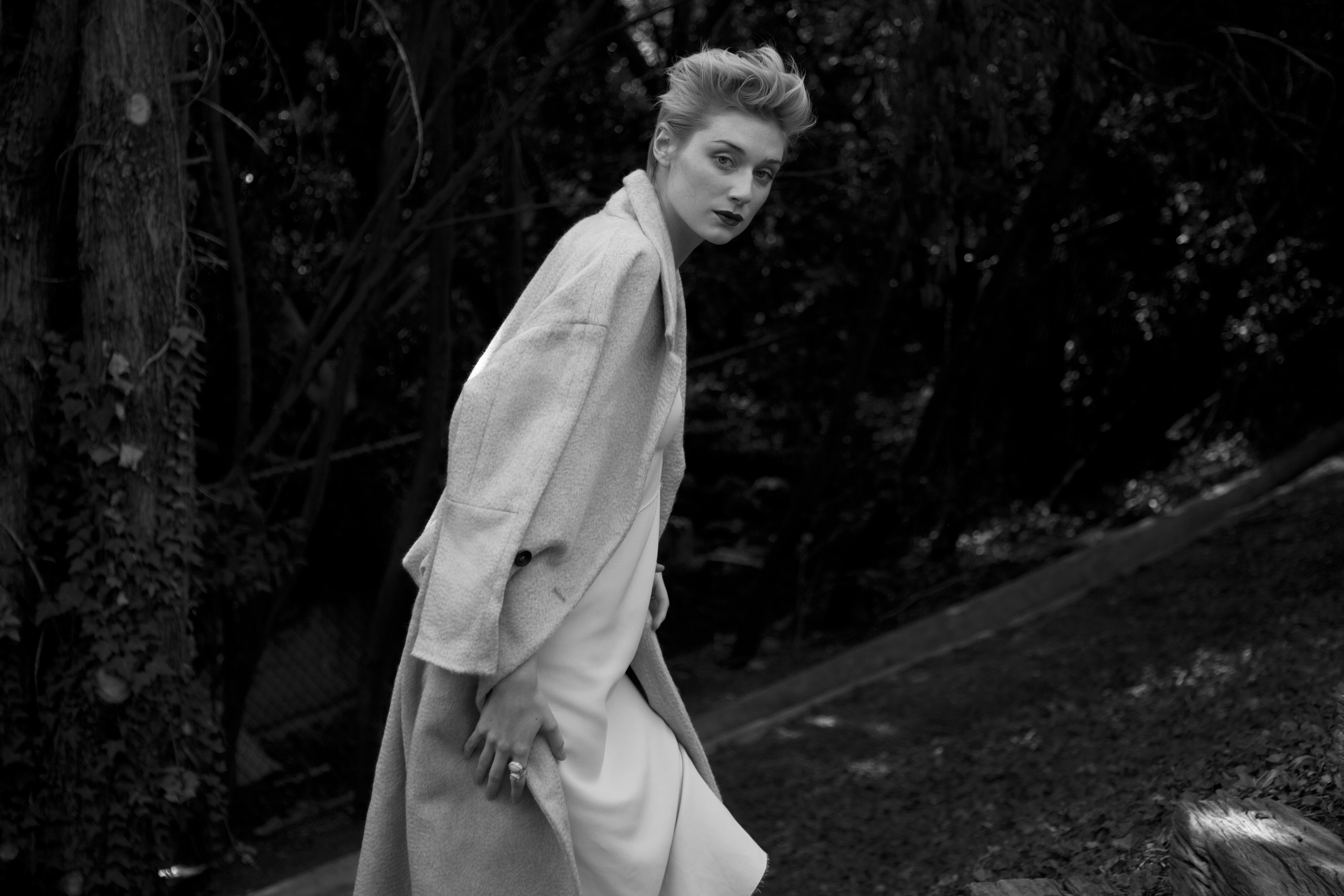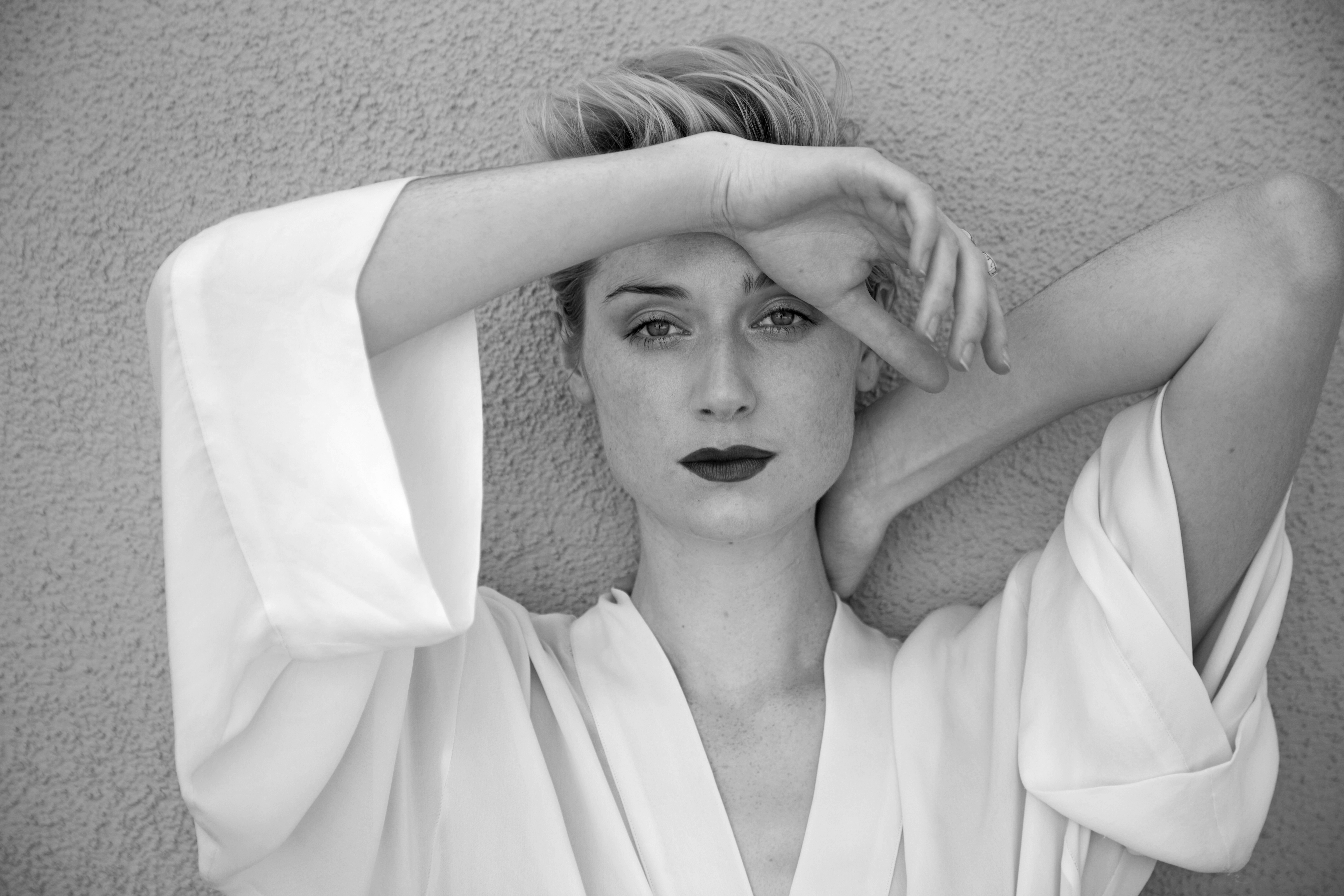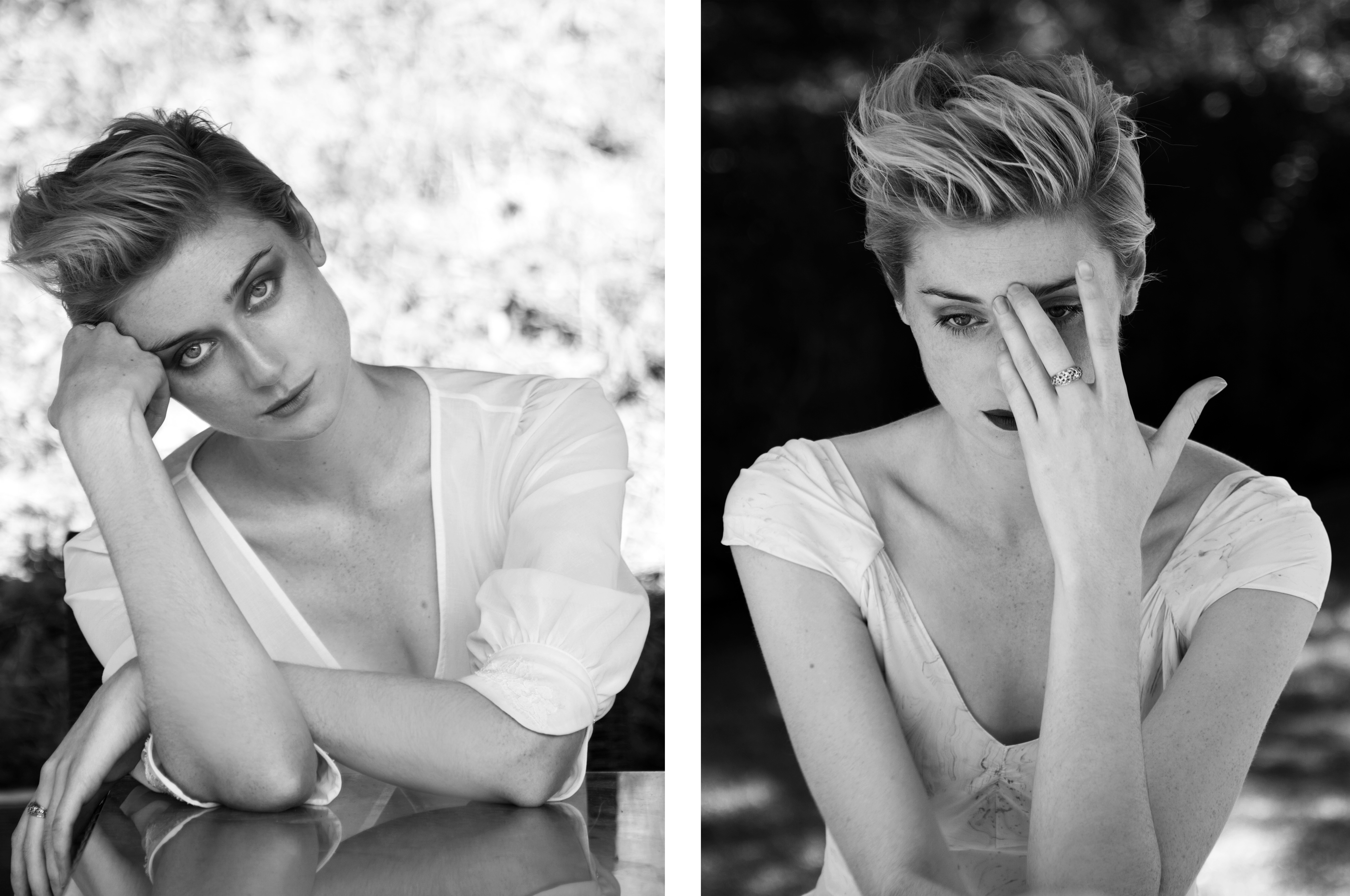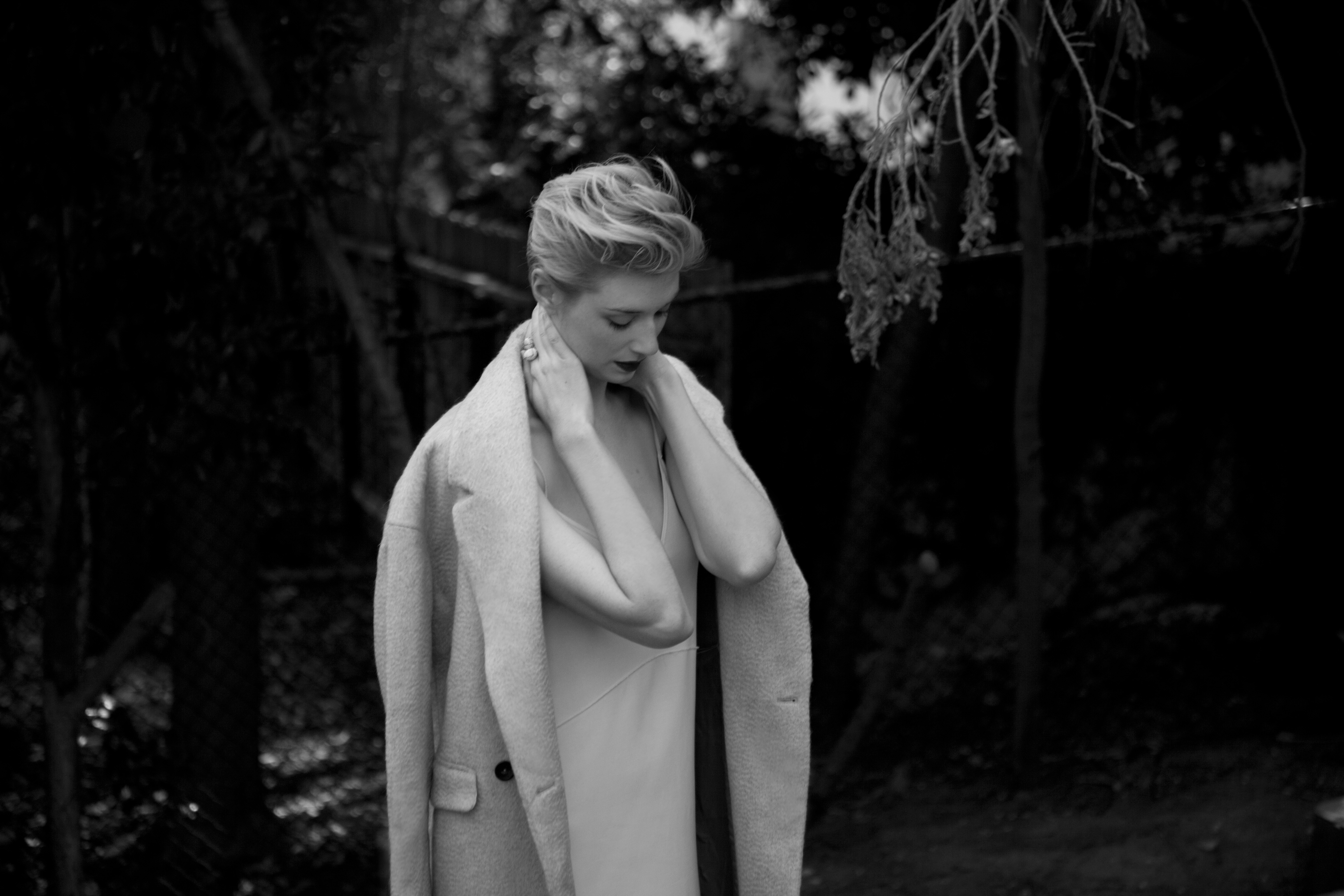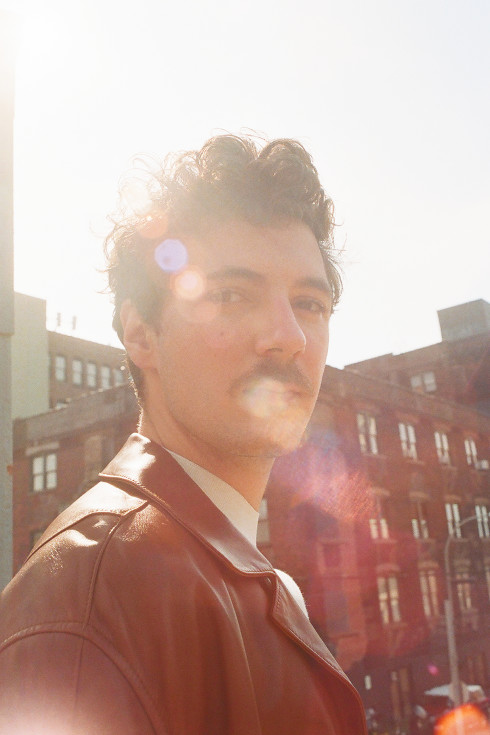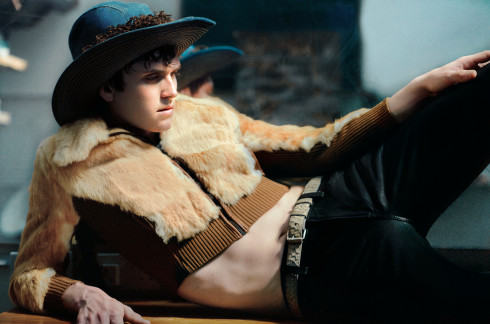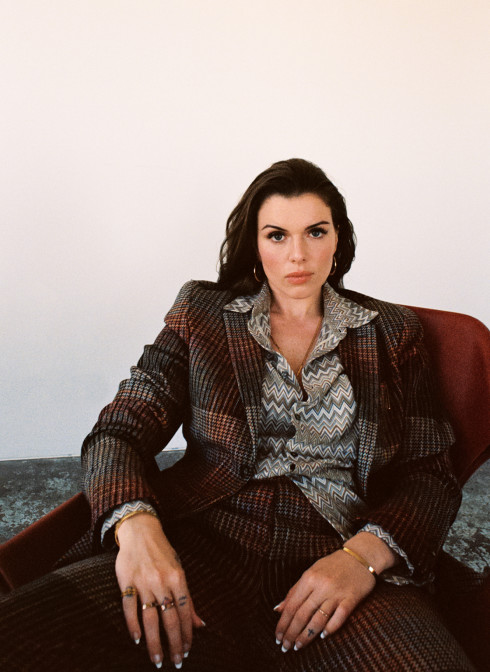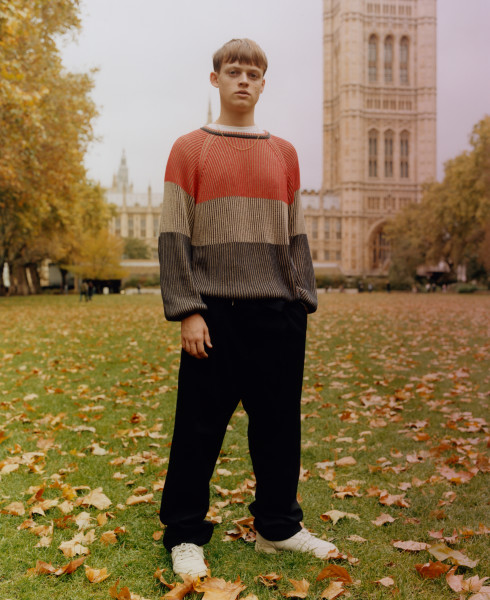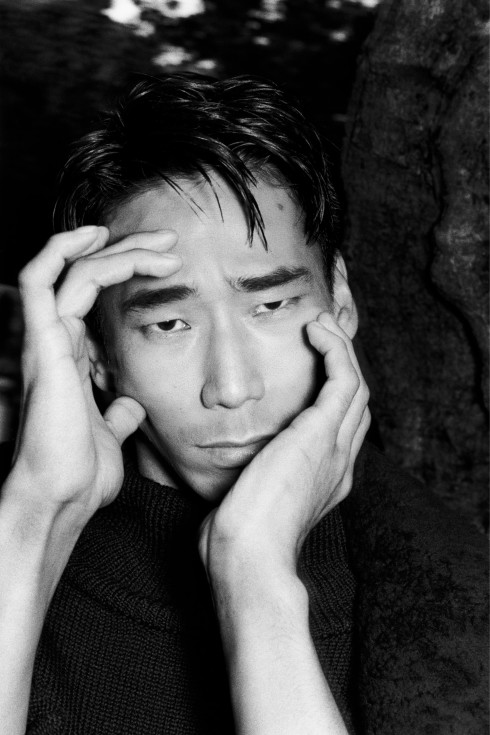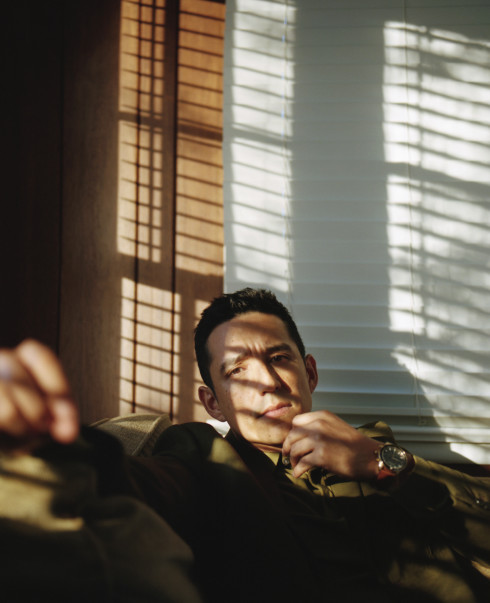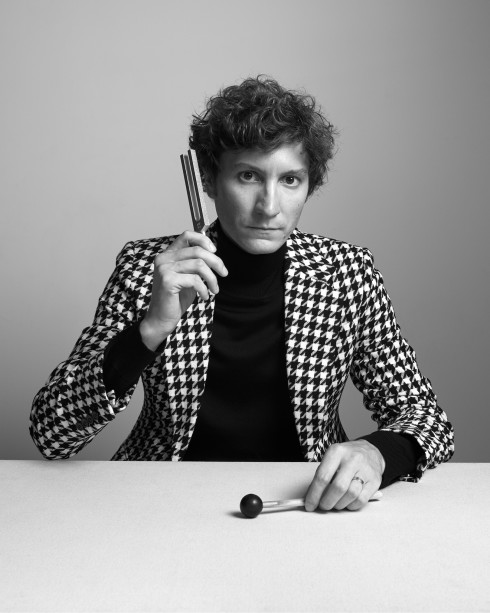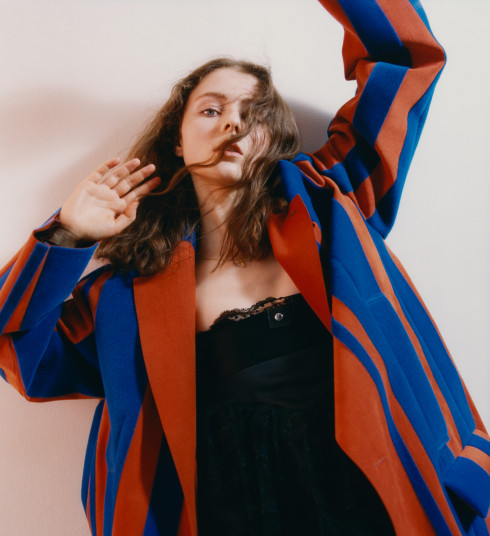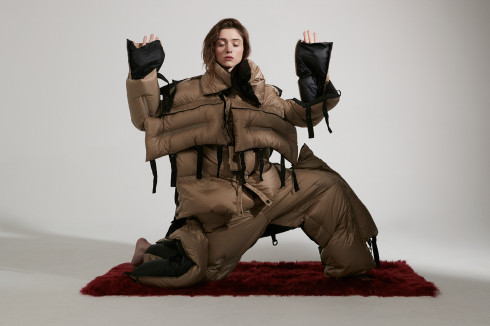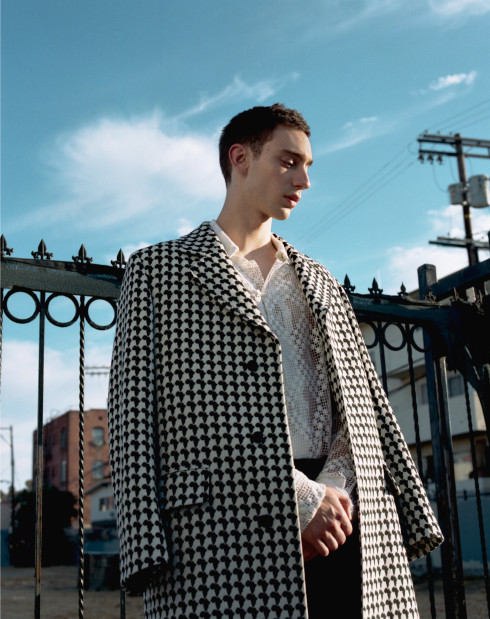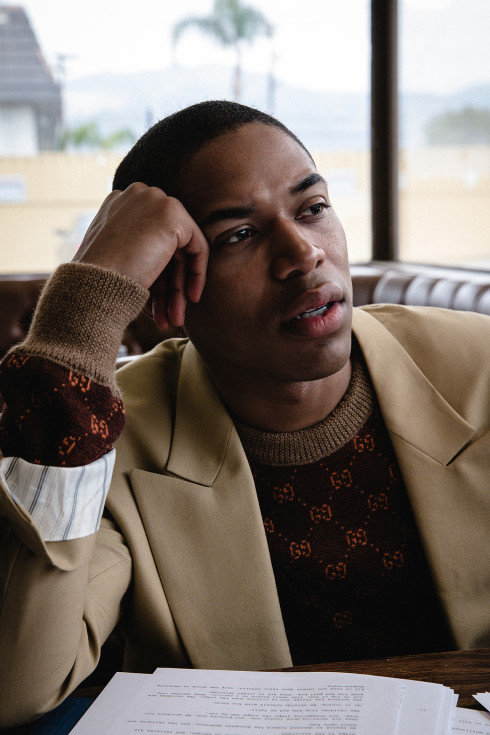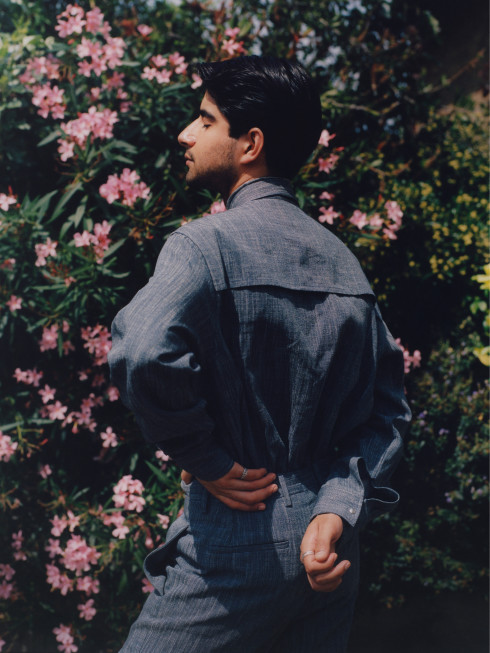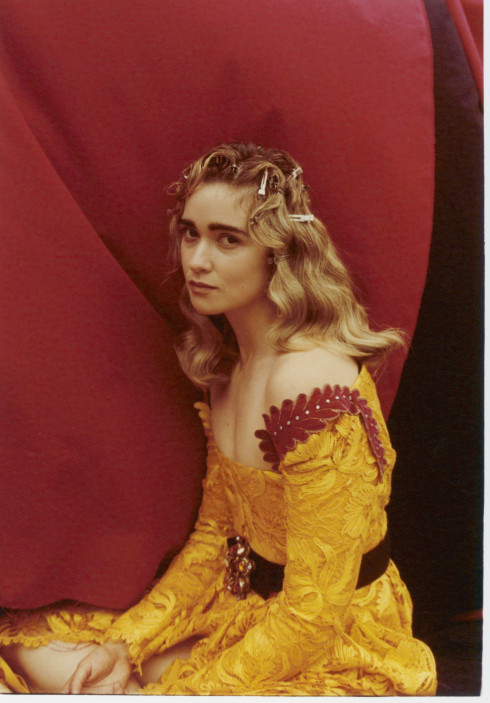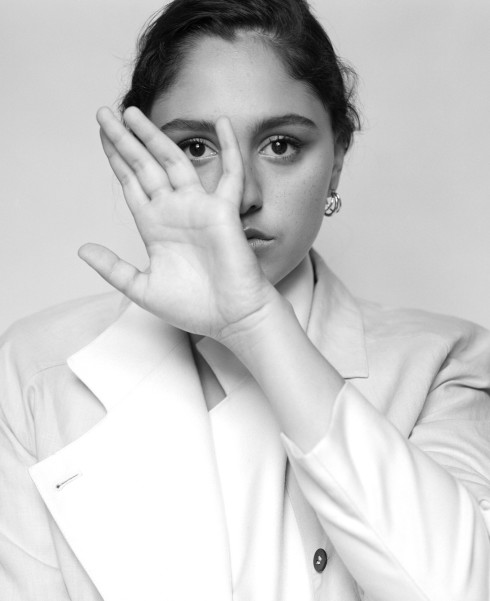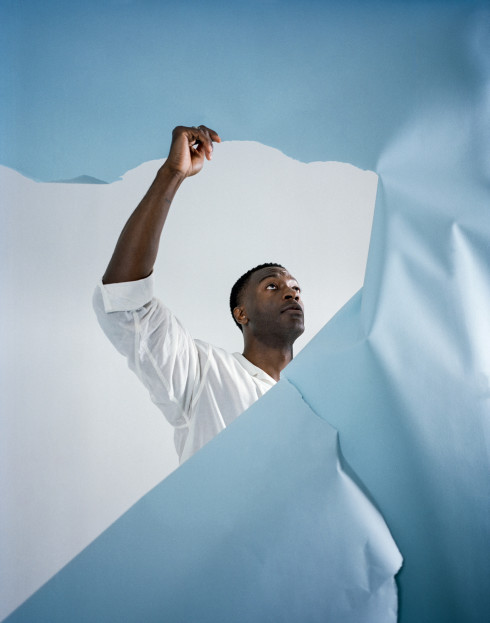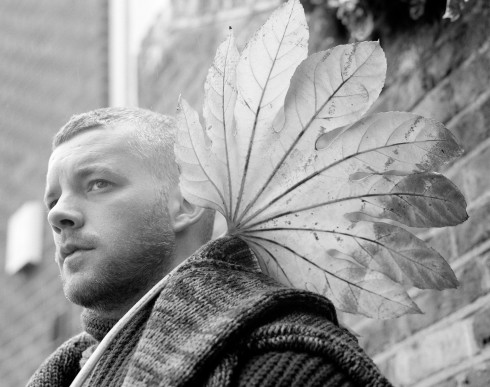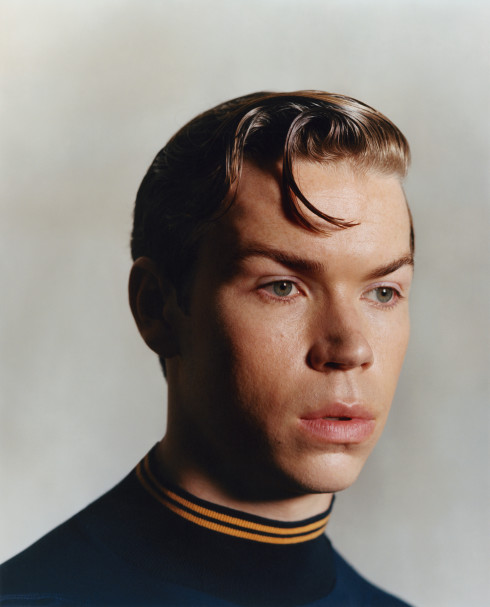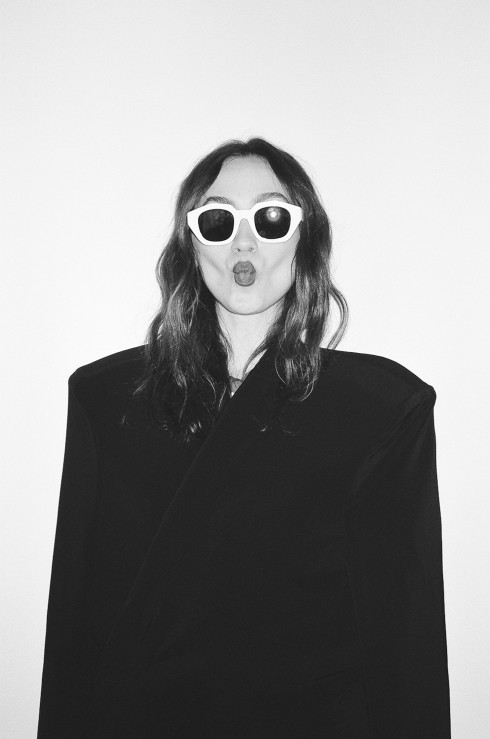- By
- Jonathan Shia
- Photography by
- Hector Perez
Styling by Nicolas Klam at Jed Root. Makeup by Jeffrey Baum at Jed Root. Hair by Kristin Hietkotter at Tracey Mattingly.
ELIZABETH DEBICKI
Few characters in the œuvre of Shakespeare do as much with as little stage time as Lady Macduff from Macbeth—the bear in The Winter’s Tale is perhaps one obvious exception—who, in just one scene, radiates fury, terror, and, in her offstage murder, the pathos that is otherwise hard to come by in the play. In the director Justin Kurzel’s new adaptation of Macbeth, with Michael Fassbender in the title role with Marion Cotillard as his wife, Lady Macduff shares her scene-stealing ability with the actress who plays her, Elizabeth Debicki, a young Australian actress who has made memorable impressions in several featured roles in recent years and who is now ready to take the lead.
“I knew it was going to be a rough ride emotionally as an actor,” Debicki says of her latest role. “The murder of Lady Macduff is the tipping point of the story because the murder is so savage and unnecessary, so there is no redemption for the two protagonists of the play.” In Kurzel’s brutally visceral vision, the scene becomes even more powerfully charged: Debicki curses and rails against Macbeth while tied to a stake alongside her children, before they are all set ablaze. “I knew what I wanted to do with it and I knew that Justin would want to do something incredibly savage and distressed,” she says. “It was really, truly one of the most difficult things I’ve ever done as an actor from just an emotional standpoint.”
Born in Paris to dancer parents, Debicki moved with her family to Melbourne at the age of five, where she picked up ballet, or, as she calls it, “the family business.” The turning point came at seventeen, when she had to decide between studying drama at the University of Melbourne’s Victorian College of the Arts or attending law school on a scholarship. “For a very brief moment, I almost had a normal life and went to university and studied something practical,” she laughs. “Then that all went to hell and I went to acting school instead.”
After graduating, Debicki played a small role in an independent Australian film—“I think I had three lines and I think they cut most of them,” she laughs—but her audition reel caught the attention of Baz Luhrmann, who cast her opposite Leonardo DiCaprio and Carey Mulligan in his grandiose Great Gatsby as the tennis player Jordan Baker, a role that first brought her to international attention. “In a way, I think that it was a blessing to do it early,” she says of the massive studio production, “to be on that scale early, because you take it as normal. I kind of walked onto that set and went, ‘Oh, well I suppose six hundred extras accurately dressed and being on a microphone with women on trapezes above you is a normal day at the office.’”
After The Great Gatsby’s release, Debicki joined the Sydney Theatre Company’s production of Jean Genet’s The Maids, a difficult and dense play about power and class and control. Debicki played the mistress of two maids, portrayed by Cate Blanchett and Isabelle Huppert, wound in a codependent and brutal relationship. After several months in Sydney, the production transferred to New York as part of the 2014 Lincoln Center Festival, where Blanchett’s recent Oscar win helped pump up the media machine to a level that Debicki says left her slightly overwhelmed.
With her strong background in theater, and the support of Blanchett and Huppert, both of whom Debicki says she has looked up to for years, the young actress recalls being simultaneously daunted and energized by the scope of the New York stage she was joining. “It was exhilarating, but terrifying, because we had three days of rehearsal and we were trying to piece together something that we had such a strong hold of a year before,” she says of returning to the play before the New York run. “There was a kind of terror, I suppose, that went along with it and then, once we opened the play, there was a sense that people were responding to it and again we could get out of our own way as actresses and just do the play. But there’s always an insane fear with live theater that you’re just going to finish and all you hear is an empty auditorium or people will leave halfway through.”
The production received outstanding reviews, and Debicki began being labeled the “next Cate Blanchett,” no surprise given the incisive performances both Australian actresses are capable of producing. Earlier this year, Debicki, now twenty-five, was seen in both Guy Ritchie’s update of The Man from U.N.C.L.E. with Henry Cavill, Armie Hammer, and Alicia Vikander, and Everest opposite Jake Gyllenhaal, Josh Brolin, and Keira Knightley.
For the glossy, supercharged Man from U.N.C.L.E., whose period stylings Debicki describes as “the Sixties on crack,” she played Victoria Vinciguerra, a Nazi sympathizer in pursuit of Cavill’s and Hammer’s spies, and a new sort of role for her that she relished. “That movie was only ever fun for me to make because I played the villain and villains have the most fun,” she says. “You just get to play and make things up and you can push it in one direction potentially too far but people accept it because you’re the villain.”
In Everest, which recounted a real-life disaster from 1996, she played Caroline Mackenzie, a doctor at camp who tends to some of the injured climbers. The film has the bombast and expansive cinematography expected from a studio disaster film, but Debicki emphasizes that it also has a sort of honesty and substance rare for the genre, thanks to its historical basis. “I had met the woman I had played in the film and I think, making it, really that was my sole concern,” she explains. “In a funny way, I knew one day she would sit down and watch it and her kids would watch it and her husband would watch it, and I remember thinking, ‘I just want to do this woman justice.’”
Debicki spent a month traveling between sets for Everest and Macbeth, an experience she says was exhausting (“I would not advise that for anybody,” she laughs), but helped leaven the gloom of playing Lady Macduff. “I think if I had just been in England shooting Macbeth, I probably would have dwelled on it a lot more,” she says. “At the same time, you do these things and they are incredibly real and visceral, and you feel like somebody has gutted out your solar plexus and jumped all over it.”
Now, completing the triumvirate, Debicki has two television projects in the works, one an Australian production called The Kettering Incident, and the other a joint project by AMC and the BBC with Hugh Laurie and Tom Hiddleston based on John le Carré’s spy novel The Night Manager. Coming from the worlds of theater and film, Debicki says what surprised her most about working in television was both how much and how little time she had. The days of shooting were packed and hurried, she says, but she was able to live with her characters more than she was used to. “The greatest story for me working on these TV things is, because you have time, you have this luxury of character development that you don’t necessarily get in film all the time,” she says. “You can develop everybody’s internal journeys and, as a woman, it doesn’t surprise me that it seems to be this medium that people have really picked up on and have really used to their advantage to tell stories.”
Television also, according to Debicki, offers greater opportunities for gender parity over film, given the broader canvases available. “If we’re going to be brutally honest in statistics of women and women’s stories being told, television is a medium that you can have the women’s stories be as evolved, as important, and take up as much time as men’s,” she says. “I think the film world is coming to it in a slower fashion, but because of the luxury of time, certainly in The Night Manager, that’s what I was really intrigued by. I really wanted to play that role because I really wanted to play that character’s journey, and had that novel been translated into a film version, perhaps the role I played would have been more marginalized, but with television you have more time to develop and to follow her as well as the man in the story.”
Debicki is currently in Freeport, Louisiana, home to a burgeoning film production industry, where she has learned to get used to being called “ma’am.” “I found it’s not because I’m old,” she laughs, “it’s because everyone is really polite.” She is starring along with Laura Dern and Ellen Burstyn in The Tale, the fictional feature début of documentary director Jennifer Fox set for release next year. As with all of her roles before, Debicki is making the most of the project, immersing herself in it completely, no matter how difficult that might be at times. “It’s one of those films where you feel like you just go in and it sort of consumes you and you get really sucked into it and it spits you out on the other end and you move on,” she says. “In this case, you go and have Christmas with your family and remember what your real life is like.”
Macbeth is out now.
- By
- Jonathan Shia
- Photography by
- Hector Perez
Styling by Nicolas Klam at Jed Root. Makeup by Jeffrey Baum at Jed Root. Hair by Kristin Hietkotter at Tracey Mattingly.
